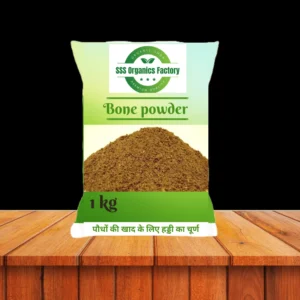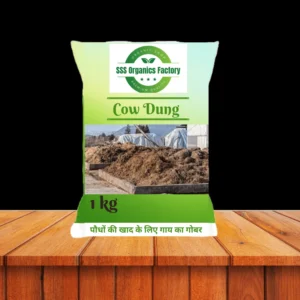No products in the cart.
Sale!
Transform Your Garden with NPK Fertilizer | Boost Growth by 30%
₹400.00 Original price was: ₹400.00.₹149.00Current price is: ₹149.00.
Discover the secret to lush, healthy plants with our NPK Fertilizer. Enriched with essential nutrients, our formula boosts growth by 30%. Shop now for vibrant gardens!
Description
NPK Fertilizer: Enhance Growth and Yield
Boost Nutrient Uptake with NPK Fertilizer
Experience bountiful harvests with our premium NPK Fertilizer blend. This carefully crafted formula maximizes nutrient absorption, ensuring your plants receive the vital elements they crave. Our NPK blend enriches soil health soil health improvement, promoting robust root development and vigorous growth. By optimizing nutrient uptake, you’ll witness stronger plants with vibrant foliage and abundant blooms.Tailored Nutrition for Lush Gardens
Tailor-made for various soil types and plant species, our NPK Fertilizer offers targeted nutrition. Whether nurturing a flourishing flower garden or cultivating a thriving vegetable patch, our NPK fertilizer provides the ideal balance of nitrogen, phosphorus, and potassium. Elevate your gardening game with this expertly formulated NPK fertilizer, resulting in healthier plants that resist disease and thrive in diverse conditions.Sustainable Gardening Made Easy
Choosing our NPK Fertilizer not only benefits your plants but also supports sustainable gardening practices. Our eco-friendly approach ensures minimal environmental impact while maximizing yield. Grow with confidence, knowing you’re using a product that’s gentle on the earth and fosters long-term soil health soil health improvement.Essential Plant Growth Nutrients: A Guide to Maximizing Growth
In the realm of gardening and agriculture, understanding the crucial nutrients necessary for optimal plant growth is key. Whether you’re cultivating a lush garden at home or managing acres of farmland, providing plants with the right nutrients can make all the difference. Let’s delve into the essential plant growth nutrients and how you can ensure your plants thrive.The Role of Nitrogen in plant growth nutrients
One essential nutrient for the growth of plants is nitrogen. It is important for the synthesis of chlorophyll, which is needed for photosynthesis. A lack of nitrogen can cause growth retardation and leaf yellowing. Consider using organic NPK fertilizers, such as compost, or planting cover crops that fix nitrogen, such as legumes, to raise nitrogen levels.Understanding Phosphorus for Strong Roots
Phosphorus is another critical nutrient that aids in root development and overall plant energy transfer. It promotes robust root systems and supports flower and fruit production. Plants deficient in phosphorus may exhibit slow growth and delayed maturity. Incorporate phosphorus-rich amendments such as bone meal or rock phosphate to enhance soil fertility.Harnessing the Power of Potassium
Potassium is essential for various plant functions, including photosynthesis, water uptake, and disease resistance. It helps regulate water movement within the plant and enhances overall vigor. Signs of potassium deficiency include weak stems and increased susceptibility to pests. Utilize potassium-rich NPK fertilizers like wood ash or kelp meal to fortify your plants.Calcium and Its Role in Plant Structure
Calcium is crucial for maintaining cell structure and strength in plants. It aids in nutrient uptake and contributes to disease resistance. Calcium deficiency can lead to blossom-end rot in fruits and distorted growth. Improve calcium levels by adding lime or gypsum to the soil, especially in acidic soils where calcium availability is limited.The Importance of Magnesium in Photosynthesis
Magnesium is a central component of chlorophyll, essential for converting sunlight into energy during photosynthesis. Deficient magnesium levels can cause yellowing between leaf veins. Combat this by applying magnesium sulfate (Epsom salt) to replenish magnesium levels and promote healthy green foliage.Sulfur: Enabling Enzyme Production
Sulfur is vital for enzyme production and overall plant growth. It contributes to the formation of amino acids and vitamins within plants. Sulfur deficiency may manifest as yellowing leaves and reduced plant vigor. Use elemental sulfur or organic matter like compost to augment sulfur levels in the soil.Micronutrients for Balanced Growth
Apart from the primary nutrients mentioned above, plants require trace amounts of micronutrients like iron, zinc, manganese, copper, boron, and molybdenum. These micronutrients play essential roles in enzyme activities, chlorophyll synthesis, and overall plant health. Incorporate micronutrient-rich amendments or foliar sprays to prevent deficiencies and ensure balanced growth.Choosing the Best Garden NPK Fertilizer for Optimal Plant Growth
Selecting the right garden NPK fertilizer is crucial for ensuring healthy and thriving plants in your garden. With various options available, it’s essential to understand the different types of NPK fertilizers and their benefits. Let’s explore the key considerations when choosing a garden NPK fertilizer that will promote optimal plant growth.Types of Garden NPK Fertilizers
- Organic NPK Fertilizers: Derived from natural sources such as compost, manure, and plant residues, organic NPK fertilizers enrich the soil with essential nutrients and improve soil structure. They release nutrients slowly, providing long-lasting nourishment to plants without the risk of chemical buildup.
- Inorganic (Synthetic) Fertilizers: Manufactured from chemical compounds, inorganic fertilizers deliver nutrients rapidly and are highly concentrated. They are ideal for correcting specific nutrient deficiencies quickly but can lead to nutrient imbalances and soil degradation over time.
Essential Nutrients in Fertilizers
When selecting a garden fertilizer, consider the primary nutrients necessary for plant growth:- Nitrogen (N): Encourages the growth of leaves and general vitality. Phosphorus (P): Facilitates fruiting, flowering, and root development. Potassium (K): Promotes general plant health and disease resistance.
Slow-Release vs. Quick-Release Garden Fertilizers
- Slow-Release Garden Fertilizers: Ideal for sustained nutrition over an extended period, reducing the frequency of application and minimizing nutrient leaching.
- Quick-Release Garden Fertilizers: Provide an immediate nutrient boost but require more frequent applications to maintain plant health.
Considerations for Specific Plants
Different plants have varying nutrient requirements. Choose a Garden fertilizer formulated for the specific type of plants you are growing, whether it’s vegetables, flowers, trees, or shrubs.Environmental Impact
Opt for environmentally friendly Garden fertilizer that minimize runoff and groundwater contamination. Consider using organic options or incorporating sustainable practices like composting to enhance soil fertility naturally.Application Methods
Follow recommended application rates and methods to avoid over-fertilization, which can harm plants and contribute to environmental issues. Techniques such as side-dressing, foliar feeding, and soil drenching ensure efficient nutrient uptake by plants.Enhancing Soil Health soil health improvement: Strategies for Improved Soil Quality
Maintaining healthy soil is fundamental for successful gardening and agriculture. Healthy soil provides essential nutrients to plants, supports beneficial soil organisms, retains water effectively, and promotes overall ecosystem resilience. Here are effective strategies to enhance soil health soil health improvementand improve soil quality in your garden or farm.Soil Testing and Analysis
Start by conducting soil tests to assess its current health and nutrient content. Soil testing helps identify deficiencies in essential nutrients like nitrogen, phosphorus, potassium, and micronutrients. Based on the test results, you can formulate a targeted soil improvement plan.Organic Matter Addition
Incorporating organic matter into the soil is one of the best ways to enhance its structure, fertility, and moisture retention capacity. Organic matter, such as compost, well-rotted manure, leaf mold, or cover crops, enriches the soil with nutrients, improves soil texture, and stimulates microbial activity.Cover Cropping
Planting cover crops during fallow periods or between main crops is an effective method to improve soil health soil health improvement. Cover crops like legumes (e.g., clover, peas) add nitrogen to the soil through nitrogen fixation. They also protect the soil from erosion, suppress weeds, and enhance soil structure when tilled back into the soil.Mulching
Applying organic mulch (e.g., straw, wood chips, shredded leaves) on the soil surface helps retain moisture, suppress weed growth, and regulate soil temperature. As mulch breaks down, it adds organic matter to the soil, improving its fertility and structure.Crop Rotation
Implementing crop rotation practices reduces soil depletion by alternating plant families in different growing seasons. Crop rotation disrupts pest and disease cycles, balances nutrient uptake, and prevents soil nutrient imbalances. It also enhances soil biodiversity and minimizes soil-borne diseases.Reduced Tillage
Minimize mechanical disturbance of the soil through reduced tillage or no-till farming practices. Excessive tilling disrupts soil structure, exposes soil to erosion, and depletes organic matter. Reduced tillage preserves soil structure, promotes soil aggregation, and maintains beneficial soil microorganisms.Proper Irrigation and Water Management
Optimize irrigation practices to prevent waterlogging or drought stress, which can adversely affect soil health soil health improvement. Avoid overwatering by using efficient irrigation methods like drip irrigation or soaker hoses. Conserving water reduces soil erosion and leaching of nutrients.pH Adjustment
Maintain optimal soil pH levels for specific plants by applying amendments like lime (to raise pH) or elemental sulfur (to lower pH). Proper pH levels ensure nutrient availability and support healthy microbial activity in the soil.Integrated Pest Management (IPM)
Implement IPM strategies to manage pests and diseases without relying solely on chemical pesticides. Biological controls, beneficial insects, crop diversity, and cultural practices contribute to a balanced ecosystem that supports soil health soil health improvement.Eco-Friendly Gardening: Sustainable Practices for a Greener Garden
In today’s world, adopting eco-friendly gardening practices is essential to minimize environmental impact and promote biodiversity. Whether you have a small backyard garden or a larger plot of land, implementing sustainable gardening techniques can contribute to a healthier ecosystem. Here are some eco-friendly gardening tips to help you cultivate a greener garden.Native Plants and Biodiversity
Select native plants that are compatible with the soil and climate of your area.Native plants require less water, Garden fertilizer, and pesticides compared to exotic species. They also provide habitat and food for local wildlife, promoting biodiversity and supporting pollinators such as bees and butterflies.Water Conservation
Conserve water by incorporating water-wise gardening techniques. Use mulch to retain soil moisture, install rain barrels to collect rainwater for irrigation, and choose drought-tolerant plants that require minimal watering once established. Steer clear of overwatering, which can cause water waste and nutrient leaching.Composting and Recycling
Reduce waste and enrich your soil by composting kitchen scraps, yard trimmings, and other organic materials. Compost adds nutrients to the soil, improves soil structure, and reduces the need for chemical Garden fertilizer. Additionally, recycle garden waste like leaves and grass clippings as mulch or soil amendments.Natural Pest Control
Employ natural pest control methods to manage garden pests without harming beneficial insects and wildlife. Encourage natural predators such as ladybugs, lacewings, and birds that feed on pests. Use companion planting techniques and natural repellents like neem oil or garlic spray to deter pests effectively.Chemical-Free Practices
Minimize the use of synthetic chemicals, including pesticides and herbicides, to protect soil and water quality. Opt for organic or natural alternatives that are safer for beneficial insects, wildlife, and human health. Practice integrated pest management (IPM) to address pest issues using a combination of cultural, biological, and mechanical controls.Energy-Efficient Gardening
Reduce your carbon footprint by adopting energy-efficient gardening practices. Use manual tools instead of gas-powered equipment whenever possible. Incorporate renewable energy sources like solar-powered garden lights or water features. Arrange your garden so that plants receive as much sunlight as possible.Wildlife Habitat Creation
Create wildlife-friendly habitats within your garden by providing food, water, shelter, and nesting sites for birds, butterflies, and other beneficial creatures. Incorporate native flowering plants, shrubs, and trees that attract wildlife and contribute to the overall ecological balance.Responsible Garden Maintenance
Practice responsible garden maintenance by avoiding invasive plant species that can outcompete native plants and disrupt local ecosystems. Remove weeds manually or through mulching rather than using chemical weed killers. Regularly monitor plant health to address issues promptly and prevent the spread of diseases.Education and Community Involvement
Share your knowledge and passion for eco-friendly gardening with others in your community. Participate in local gardening clubs, workshops, or community gardens that promote sustainable gardening practices. By working together, we can create a greener and more sustainable future for our gardens and the planet.Conclusion
Embracing eco-friendly gardening is not only beneficial for your garden but also for the environment as a whole. By implementing these sustainable practices, you can conserve resources, support biodiversity, and create a beautiful and thriving garden ecosystem that harmonizes with nature. Let’s cultivate gardens that not only nourish us but also sustain the planet for future generations.Go and turn on towards organic farming to save future and thire save childs:
Elevate Plant Growth with Premium Bone Powder – Buy Now! Organic Cow Dung Compost: Transform Your Garden Naturally Premium Humic Acid for Healthy Plants | Enhance Soil & Boost Growth Boost Plant Growth Naturally with Mustard Cake | Organic Fertilizer Transform Your Garden with NPK Fertilizer | Boost Growth by 30%Premium Perlite for Enhanced Gardening | Buy Now Live Earthworms with Enhance Your Garden (soil health) 1 Neem Khali: Unveiling the Wonders of Nature 1Transform your garden with vermiwash-buy now1 Premium quality Vermicompost [ केचुआ खाद ]Follow us:YoutubeInstagramFacebookSale
Hybrid Mango Dasheri – Sweet & Fresh, Lasts 2X Longer!
Rated 0 out of 5
Hybrid fruit plants
Experience the irresistible sweetness of Hybrid Mango (Dasheri), a tropical delight with juicy, creamy flesh and a refreshing taste. Known for its longer shelf life and premium quality, this mango...
₹599.00 Original price was: ₹599.00.₹400.00Current price is: ₹400.00.
Total Sold: 0
Sale

- Select options This product has multiple variants. The options may be chosen on the product page
Neem Oil - 3-in-1 Natural Solution for Garden, Skin, and Home
Rated 0 out of 5
Neem Oil
Discover the power of neem oil for natural pest control, glowing skin, and a chemical-free household. Protect your plants, nourish your skin, and sanitize your home with one versatile product.
₹800.00 Original price was: ₹800.00.₹700.00Current price is: ₹700.00.
Total Sold: 0
Select options This product has multiple variants. The options may be chosen on the product page
Sale

- Select options This product has multiple variants. The options may be chosen on the product page
Elevate Plant Growth with Premium Bone Powder - Buy Now!
Rated 0 out of 5
Bone Powder
Transform your garden with nutrient-rich bone powder . Strengthen roots and boost foliage with our organic plant growth enhancer. Shop now for lush, vibrant plants!
₹69.99 – ₹99.99
Total Sold: 1
Select options This product has multiple variants. The options may be chosen on the product page
Organic Cow Dung Compost Transform
Rated 0 out of 5
Cow Dung
Discover the power of organic cow dung compost! Enrich soil, boost plant health, and embrace sustainability with nutrient-rich compost. Start your garden transformation today. Dose:- 10 kg. / 1 sq....




